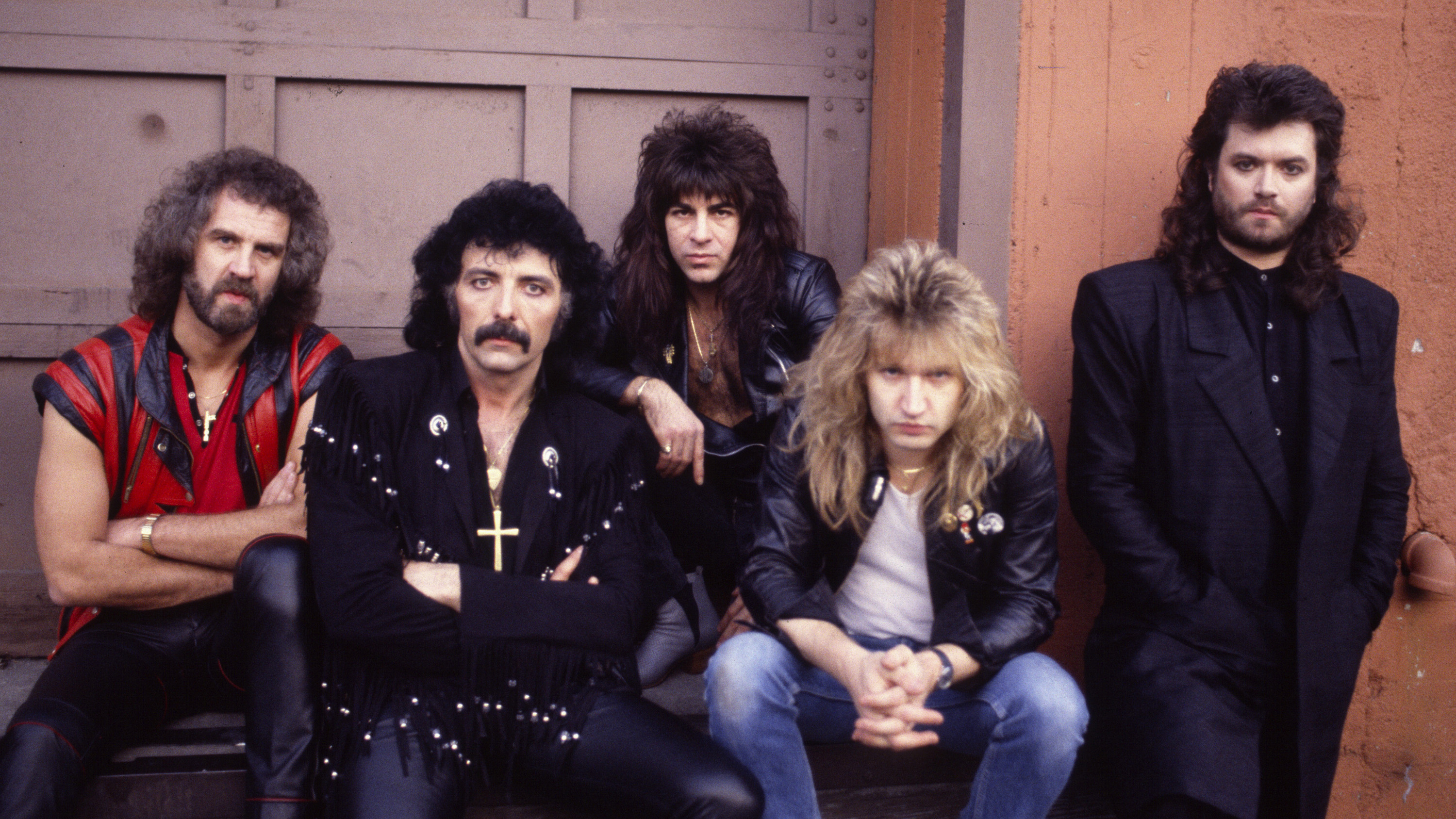“It was a difficult moment to be hit in the face and then asked to sing a song. It was a tragic moment for me”: How a singer’s spell in Black Sabbath turned into a nightmare
"I was never a Black Sabbath-type singer", Glenn Hughes says

Glenn Hughes didn’t plan on joining Black Sabbath. It just sort of happened. And it turned into one of the biggest mistakes of his career.
In 1985, Hughes was approached by an old friend – Sabbath guitarist Tony Iommi.
Iommi was working on a solo album, and told Hughes of his plan to feature an ensemble cast of famous vocalists across the album.
Among the big names lined up were Judas Priest’s Rob Halford and former Sabbath star Ronnie James Dio.
But in the end, Hughes was the only singer featured on the album that Iommi named Seventh Star.
In addition, what started out as a solo project eventually turned into a Black Sabbath album – albeit with the words ‘featuring Tony Iommi’ after the band’s name.
And for Hughes this strange episode ended abruptly and in disastrous fashion.
Want all the hottest music and gear news, reviews, deals, features and more, direct to your inbox? Sign up here.
As Hughes now tells MusicRadar: “I love Tony dearly, and working with him was interesting. But it was a difficult time for all of us.”
He adds, alluding to his drug addiction during that time: “I look back on it now, and I’m not the man today that I was back in the mid-’80s.”
It was in the early ’70s that Hughes befriended Iommi.
Hughes was from Cannock in the Midlands, less than 30 miles from Black Sabbath’s hometown of Birmingham.
“I’d known Tony from the very beginning,” he says. “Since [Sabbath’s 1970 album] Paranoid. He was like family to me, and we grew up together in the UK.”
Hughes first made a name for himself as bassist and lead vocalist of power trio Trapeze.
He then joined Deep Purple, with whom he recorded three albums – Burn, Stormbringer and Come Taste The Band.
But his career path was erratic due to his problems with drugs.
In 1977 he made a soul-influenced solo album, Play Me Out, and in 1982 he starred on a cult classic hard rock record with guitarist Pat Thrall under the banner Hughes/Thrall.
Hughes says now that when Iommi reached out to him in 1985 there was never a discussion about him joining Black Sabbath.
He recalls: “After Purple finished, I was kind of done making that sort of grandiose rock music. And I say this with respect and reverence – I was never a Black Sabbath-type singer.
“I’m not a metal artist at all. And when you listen to the songs on Seventh Star, they aren’t Sabbath, you know?”
He says of Iommi’s offer: “Tony called me in 1985 to see if I was available to sing on a couple of songs – on a solo album with him. He told me that Ronnie James Dio and Rob Halford were gonna sing on a couple of songs each, and I was gonna sing on a couple of songs.
“So I went down to Cherokee Studios in Hollywood, and the first song we recorded was No Stranger To Love.
"Tony and I wrote the song that night, and we recorded it that night. Then Tony said, ‘Whoah, that was great! Can you come back tomorrow?’ And so I came back the next night, and we did In For The Kill.
“From that moment on, I think Tony realised: ‘Glenn is writing a song with me every day. I think we can just continue.’ So, he asked me if I’d like to be the only singer on the album, and I said, ‘Of course! No problem.’”
Seventh Star became a Black Sabbath album after Iommi was leaned on by the band’s record label Warner Brothers and manager Don Arden, father of Sharon Osbourne.
Hughes recalls: “Don Arden said, ‘Well, Warner Brothers thinks we should, for more ticket sales, call it ‘Sabbath featuring Tony’. Tony was not happy about that. And I, of course, had no say in the matter. So we had to go with what Warner Brothers and Don Arden wanted, really.”
Seventh Star was released in January 1986 and sold poorly.
Hughes admits: “Honestly, I haven’t heard the album in decades, but people talk about it. Some of the riffs are quite heavy, but lyrically and melodically, I’m not a metal singer. It really wasn’t my cup of tea, as they say.”
Alongside Iommi and Hughes, the album featured bassist Dave ‘The Beast’ Spitz, keyboard player Geoff Nicholls and future Kiss drummer Eric Singer. This line-up began a US tour but after just a few dates Hughes was fired and replaced by American vocalist Ray Gillen.
“That was difficult,” Hughes says now. “I had a problem, and got into a fight with the production manager the day before the tour started.
“He hit me right in the face, and broke a bone in my nose, and consequently I had dried blood caked around my vocal cords, so I couldn’t sing after three shows. It was impossible.
“Now, looking back, that’s kind of a horrifying thing for anyone to do. Regardless of if he hit me, or who said this, or who did what, it was a difficult moment for anybody to be hit in the face, and then asked to sing a song. So, it was a very tragic moment for me and Tony. But I can’t change the way things were."
It was one of the lowest points in his career, but Hughes says has no regrets about it now.
“All those things that happened to me in the mid ‘80s, they made me the man I am today,” he says. “I’m still here doing what I do. And with reverence and respect, I love Tony very much – and I love Black Sabbath. I have deep respect and love for all of that.”
Andrew Daly is an iced-coffee-addicted, oddball Telecaster-playing, alfredo pasta-loving journalist from Long Island, NY, who, in addition to being a contributing writer for Guitar World, scribes for Rock Candy, Bass Player, Total Guitar, and Classic Rock History. Andrew has interviewed favorites like Ace Frehley, Johnny Marr, Vito Bratta, Bruce Kulick, Joe Perry, Brad Whitford, Rich Robinson, and Paul Stanley, while his all-time favorite (rhythm player), Keith Richards, continues to elude him.
You must confirm your public display name before commenting
Please logout and then login again, you will then be prompted to enter your display name.

